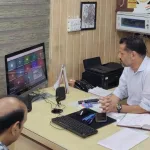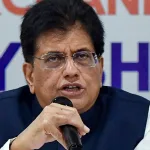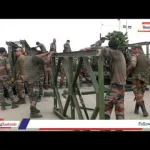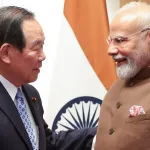Srinagar, Dec: The High Court of Jammu & Kashmir and Ladakh granted four weeks’ time to the government to file an affidavit regarding the vacancies in police force and the steps taken to fill up these vacant posts in J&K.
Hearing a suo-moto public interest litigation (PIL) seeking modernization, reformation and progression of the police force in J&K, a division bench of Acting Chief Justice Tashi Rabstan and Justice Rajesh Sekhri granted four weeks’ time to the senior government officer to file an affidavit on the issue.
The direction came after Additional Advocate General, Asifa Padroo, sought further time to file the affidavit.
“Ms. Asifa Padroo, learned AAG seeks and is granted further four weeks’ time to do the needful in terms of order dated August 26, 2022,” the bench said and listed the matter for hearing on February 27, 2023.
On August 26, this year, the court noted that the primary issue raised in the plea is regarding filling of the various posts in the police force.
The bench had pointed out that, on May, 26, 2022, it had asked Advocate General, D.C Raina to file an updated status report regarding the vacancies and the steps taken to fill them.
Underscoring that the Advocate General is possessed of the complete chart of the work done in this regard, but, the court said, it would be better if the said information is brought on record by means of an affidavit of a senior officer.
The court had pointed out that in addition to the modernization of the police force of J&K, it is also essential to develop linkages between the police stations and the certain institutions including Legal Service Authorities and the trial courts.
The bench had sought a status report regarding all issues relating to modernization and progression of the police force as well as the effective linkages between the police stations as well as the trial courts.
Earlier, pursuant to the directions of the Supreme Court of India, the High Court registered a suo-motu PIL.
The top court on March 11, 2019 while disposing of a plea titled Manish Kumar vs Union of India and others had said that the issue and problems involved in the matter are State specific and can be appropriately dealt with by the respective High Courts.
The petitioner had sought direction to all the states and Union Territories to constitute a police commission to deal with allegations of police action, redress grievances of police and to make recommendations for the welfare of the police force.
He sought directions to the States to formulate and implement the guidelines for the prevention and control of violent mass agitations and destruction of life and property.
He had prayed that the directions be issued to the states and Union Territories to fill up the vacant posts in the police and State’s armed forces “so that the police force does not remain overburdened”.
The petitioner had also sought a direction upon the Union of India to prescribe guidelines for the media reporting of the violent mass agitation and police action for prevention and control thereof.
He has also prayed that all the States and Union Territories be directed to provide for periodic training and upgradation of police force and to fix the working two hours for the police personnel.
“Order or direction restraining the States from drawing a presumption against the action of police acting under the constitutional and statutory obligations,” the petitioner had prayed.
The Supreme Court in its order dated March 11 had noted that one of the central issues canvassed till date was the filling up of a large number of vacancies in different posts in the police force in the states.
The apex court had said that the issue and problems are State-specific and could be appropriately dealt with by the respective High Courts.
“Having considered the matter, we are of the view that the records pertaining to each of the States including affidavits be sent by the Supreme Court Registry to the registry of the concerned High Courts with a request to the three Chief Justice of the High Court to entertain the matter on the judicial side as suo motu Public Interest Litigation and monitor the prayers made from time to time,” the apex court had directed while disposing of the plea.





